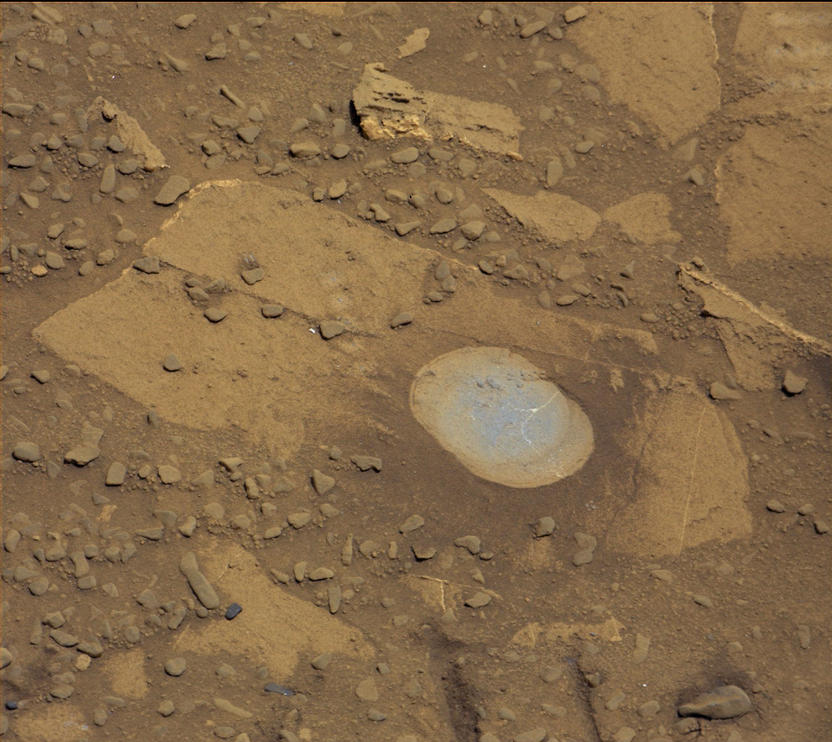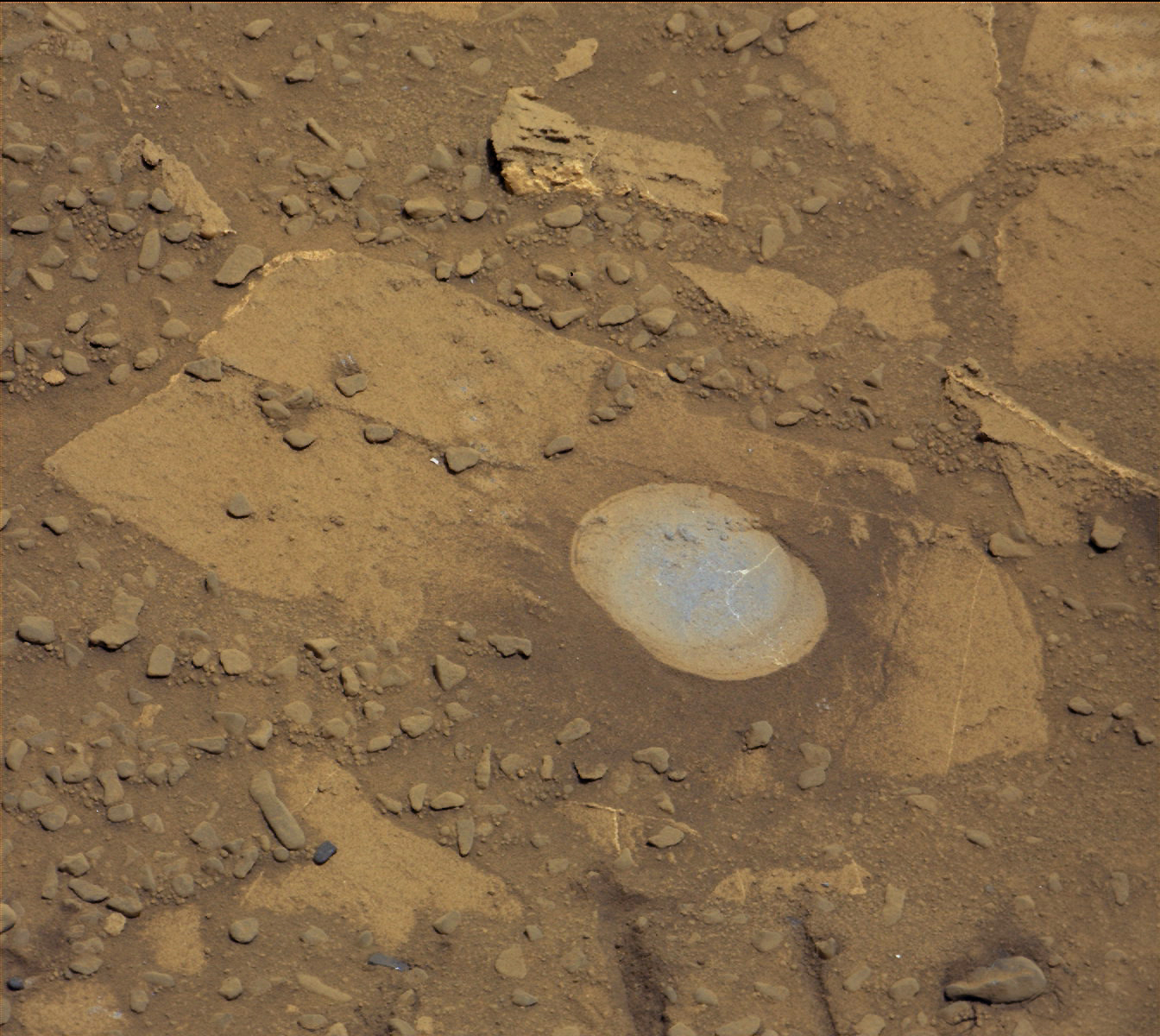Curiosity’s Brushwork on Martian ‘Bonanza King’ Target

| Credit | NASA/JPL-Caltech/MSSS |
|---|---|
| Language |
|
NASA's Curiosity Mars rover used the Dust Removal Tool on its robotic arm to brush aside reddish, more-oxidized dust, revealing a gray patch of less-oxidized rock material at a target called "Bonanza King," visible in this image from the rover's Mast Camera (Mastcam).
The Mastcam's right-eye camera, which has a telephoto lens, took this image on Aug. 17, 2014, during the 722nd Martian day, or sol, of Curiosity's work on Mars. The brushing activity occurred earlier the same sol. The rover team is evaluating Bonanza King as a possible drilling target. The mission has previously drilled into three target rocks to collect sample powder for analysis by the rover's onboard laboratory instruments.
The brushed area is about 2.5 inches (6 centimeters) across. It reveals thin, white, cross-cutting veins. They might be sulfate salts or another type of mineral that precipitated out of solution and filled fractures in the rock. These thin veins might be related to wider light-toned veins and features in the surrounding rock.
To the left of the brushed patch is a row of five smaller and less conspicuous spots where dust has been partially removed. These are at points on Bonanza King that were zapped with the laser of Curiosity's Chemistry and Camera (ChemCam) instrument on Sol 719 (Aug. 14, 2014). Color balancing and contrast adjustment have been used in preparing this image from Mastcam's raw image of this exposure.
Drilling a shallow test hole is the next step in evaluating this location for full-depth drilling to collect a sample. The shallow "mini-drill" test enables assessing whether powder from the drilling tends to clump.
Bonanza King is on a ramp rising from the northeastern end of "Hidden Valley," between Curiosity's August 2012 landing site in Gale Crater and destinations on Mount Sharp within the crater.
NASA's Jet Propulsion Laboratory, a division of the California Institute of Technology, Pasadena, manages the Mars Science Laboratory Project for NASA's Science Mission Directorate, Washington. JPL designed and built the project's Curiosity rover. Malin Space Science Systems, San Diego, built and operates the rover's Mastcam.

